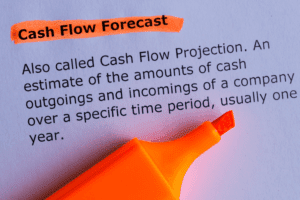
Also, some business types are required to choose the accrual method, but this varies based on industry as well as the country. These platforms will ensure that you’ve documented all expenses in case of an IRS audit. They can also integrate with many accounting systems, simplifying bookkeeping. Accrual accounting is a requirement if you plan to scale, take on investors, or apply for loans. However, it’s more complex and may provide a misleading picture of your cash flow.
The best bookkeeping tools for small businesses

This eliminates the need for manual data entry and reduces the risk of human error. FreshBooks also offers time-tracking capabilities, allowing you to track billable hours spent Car Dealership Accounting on projects or tasks. This feature is handy for freelancers who need to charge by the hour or businesses that want to monitor employee productivity.
- It is a form of tracking transactions as they occur in real-time, even if payment hasn’t yet been executed.
- Sage offers a range of accounting products, with Sage Business Cloud being particularly well-suited for small startups.
- Both tiers include basic features, like income and expense tracking, invoicing, and a mobile app.
- But as you grow, an accountant can help you set up systems to grow with you and advise you on ways to improve accuracy, tax compliance, budgeting, and more.
Quarterly tasks
QuickBooks, Xero, and FreshBooks are frequently embraced by startups for their user-friendly interfaces, robust features, and scalability. True to its innovative nature, Patriot also owns the patent on toggling between accrual and cash-basis accounting. Seamlessly integrating with broader enterprise functionalities, it unifies essential business processes into a centralized platform. Customer support is another vital factor—opt for providers known for reliable assistance if issues contribution margin arise. Many platforms offer trial periods or demos; take advantage of these opportunities to test functionality before committing. FreshBooks definitely shines when it comes to invoicing and ease of use, but like any software, it has its pros and cons.

A Guide to Bookkeeping for Startups
Startups are all about scale, and their accounting software should be, too. Before choosing a service, ensure that there are plans available to grow alongside your business as you reach your goals. For small businesses, though, Sage offers two cloud-based programs, namely, the basic Sage Accounting software and the more robust cloud-based desktop hybrid accounting Sage 50cloud software. Sage is a world-leading business applications and enterprise resource planning (ERP) software development company.
- Midsize businesses looking for scalable accounting software can use Xero to manage finances, track expenses, and automate bookkeeping tasks without being locked into a single ecosystem.
- Payroll software supports payroll processing, tax filings, wage calculations, and direct deposits.
- Every business plan should include an income statement because it’s a key financial snapshot that helps to evaluate your company’s performance.
- Additionally, ZarMoney offers online payments, bank connections, and detailed reporting to help businesses manage their finances.
- A trial balance ensures that the debit and credit balances in the ledger accounts match.
The Accounts Receivable and Accounts Payable can enable you to keep up to date on assets and liabilities in real time. As per Gov.uk, small businesses and sole accounting services for startups traders that have revenue or turnover of less than £150,000 per year can use cash accounting. Businesses can change from cash to accrual accounting during this stage and once they grow beyond this figure.
